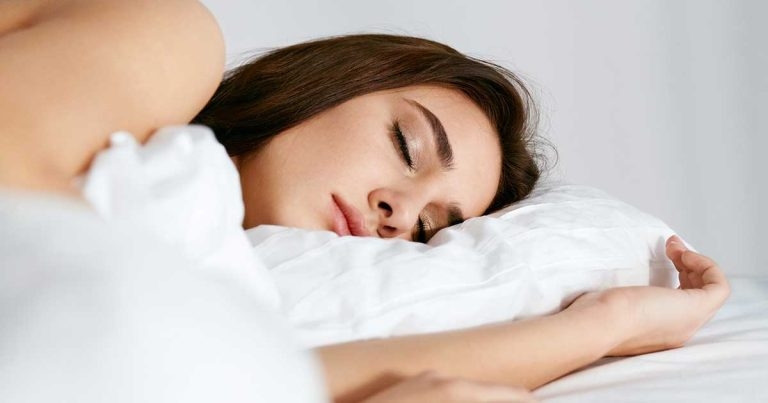22 Jul 2020
Been struggling with sleep during lockdown? You're not alone, says Nat Scroggie, who offers some advice in her latest COVID diary.

Image: © puhhha / Adobe Stock
Scientists have discovered a revolutionary new treatment that makes you live longer.
It enhances your memory, makes you more attractive. It keeps you slim and lowers food cravings. It protects you from cancer and dementia. It wards off colds and flu.
It lowers your risk of heart attacks and stroke, not to mention diabetes. You’ll even feel happier, less depressed, and less anxious.
Are you interested?
This is not the introductory statement to a groundbreaking new treatment for COVID‑19, but a paragraph from the opening pages of Why We Sleep: The New Science of Sleep and Dreams by Matthew Walker.
It was written long before the pandemic, but each word is hauntingly pertinent.
Obesity, heart problems and diabetes are known risk factors for developing serious complications from coronavirus; anxiety and depression are silent side effects of lockdown.
If ever a time has existed to improve our well‑being and boost our physical health, this is it.
A study assessing the impact of sleep on our immune system administered a live cold virus up the nostrils of 150 healthy individuals, after tracking their sleep for the preceding week.
In those who slept just five hours on average, the infection rate was as high as 50 per cent, compared to just 18 per cent in those sleeping seven hours or more.
Amazingly, sleep was more important than any other factor in determining whether the subjects caught the virus, yet I have not seen it mentioned in any weekly briefing.
Maybe the Government should be advising a mandatory eight hours’ sleep each night? It would be one of the more enjoyable guidelines to follow.
It is not just susceptibility to disease – further studies have shown that sleeping for more than seven hours profoundly impacts your body’s immune response to a flu vaccination.
I have never been asked how well I have slept before receiving a vaccination, nor enquired about the restfulness of a puppy before administering its first jabs. But it is something to consider should a vaccination for COVID-19 become available in the future.
Life is still so uncertain. Will a second wave occur; a second lockdown? Is herd immunity a thing? Will someone develop an effective vaccination? Does wearing a face mask really help?
We do not know the answers to a lot of questions, and research still needs to be done. But the evidence behind the benefit of sleep is already there, and then some.
If we, as a profession, could do one thing to protect ourselves physically and mentally during lockdown, could we make it a change in our collective attitude towards sleep?
Reading Why We Sleep transformed my attitude towards sleep and contributed significantly to quitting my job as a night vet. Since then, I have taken a few steps towards my own sleep health.
The first was recognising that to have even a hope of sleeping for seven or eight hours a night, you must actually be present in your bed for at least that time. It sounds obvious, but takes some commitment – particularly if you are a night owl like me and have no choice but to wake up at a time you would naturally be asleep.
I have stopped looking at my phone for at least half an hour before bed and try not to work late in the evening on my laptop. Despite the relentlessness of lockdown practice, I have given up caffeine after lunchtime, which has had a huge impact.
I also bought a great sleep mask because that was significantly cheaper than better curtains. If my brain is too busy to sleep, I use the sleep section on the Headspace app to switch off.
You can do a million more things; a million ways you can make a positive impact on your health and well-being by sleeping more.
One insurance giant has gone as far as offering financial bonuses to employees achieving more than seven hours’ sleep a night.
With the potential for track and trace to close veterinary practices, and the evidence behind the enormous impact of sleep on both our immune system and cognitive function, it is something for the leaders in the profession to consider.
If financial incentives are a step too far, maybe we could start with thinking about the ways we can encourage a culture of good sleep health in ourselves and our teams.
If I could imagine one single well-being initiative across the profession during lockdown, it would be for everyone to read Why We Sleep. It is the one book I can genuinely say did change my life, and I would recommend it to you all.
I promise it will completely change how you think about sleep, and may help you stay safe and well during the pandemic. At the very least, you will never berate yourself for a lie-in again.